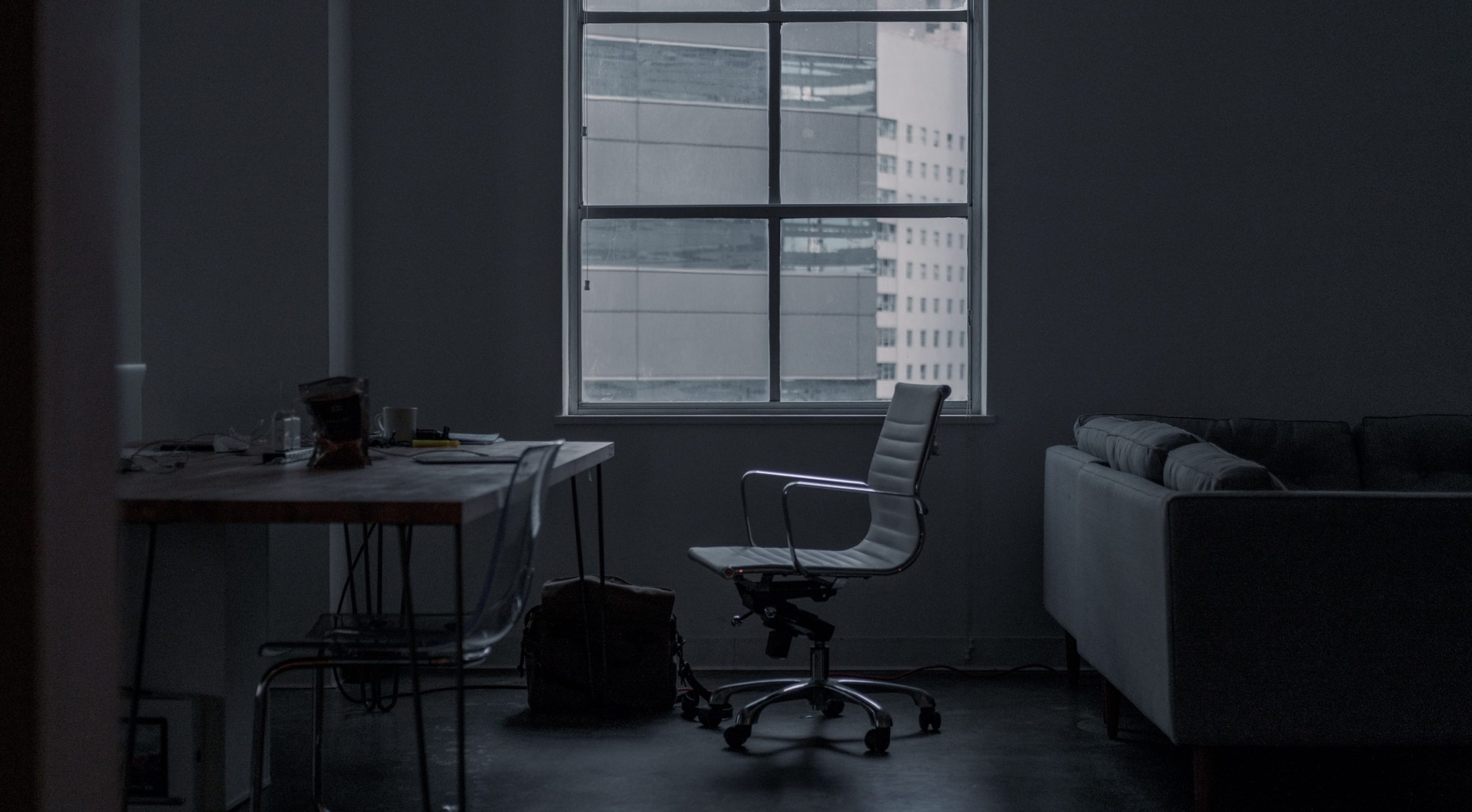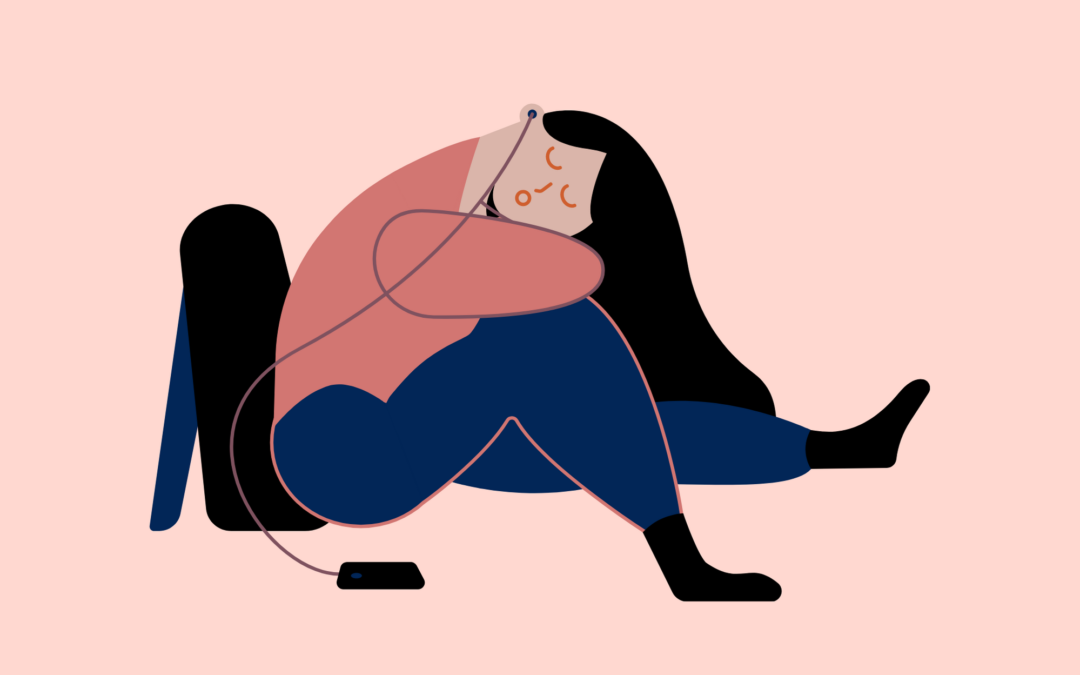It’s like something out of a science fiction novel.
The whole world is facing an economic crisis and battling the spread of a pandemic.
These are, as every news article loves to reiterate, unprecedented times.
We’re all being told to look after our physical health and take extreme precautions to stop the spread of COVID-19 by practicing social distancing and self-isolation.
However, it is not only our physical health that is at risk here.
Equally as important is our mental health.
There will be more people than ever before struggling with their mental state of mind as we face job losses, financial insecurity, illness, grief, loneliness and uncertainty about the future.
For those of us who already have pre-existing struggles with eating disorders, anxiety, depression or OCD, the intensity has just been ramped up tenfold.
This is a time to share our coping mechanisms and try to work out how we can face day to day life in the healthiest and most positive way possible.
This is a time to reach out (albeit not physically) to support and help each other through this time.
Routine is more than structured meals

For a number of years, I struggled with an eating disorder and keeping a routine was such an important factor.
Without structure to the day I would panic, overthink and irrational thoughts would push into my head and fight for attention.
I would count the hours between mealtimes, I knew exactly what I ‘should’ and ‘shouldn’t’ eat and if I didn’t go out and exercise, how could I possibly eat at all?
For almost everyone today, our ‘normal’ daily routine has been thrown out the window and replaced with lockdowns and self-isolation.
We’re stuck indoors and quantities of food is one of the hot topics up for discussion.
With less distractions, there’s more time to think about food, especially when meals seem to be the only thing that structure the day.
Do not panic.
You can make your own routine, which I’ll talk more about later, and give yourself structure to each day, and that doesn’t have to revolve around food.
Remember that whatever you’re doing with your day, your body needs fuel.
You need this energy to be able to take care of yourself and to help others.
Keeping well-fed and healthy is also vitally important to fight off illness, and so I urge you at this time to keep your mind occupied and to keep eating.
One of the most common symptoms of anxiety is a chronic fear of the unknown.
It’s an intense feeling of uncertainty and panic.
What if this bad thing happens to me?
What if that bad thing happens to someone I love?
This is something I am sure so many of us are feeling right now.
We’re worried about our jobs, money, health, and about the big uncertain future, which is something we always thought we had mapped out, but is now looking decisively scary and unknown.

If you’re feeling like this, please know you are not alone.
Try not to focus on all the things that are out of your control, it’s not worth the brain power.
Instead, focus on things that you can have an impact on, starting with your own wellbeing and happiness, and extending that to others.
Find the good in every day
I have someone very close to me who is beyond words always so positive about everything.
Sometimes even annoyingly positive.
The glass is always half full, and has the potential to be full to the brim and could even be over-flowing.
Listening to this person has really helped put things into perspective.
What we have in this world is amazing, the fact that we’re alive is a huge blessing.
Whilst acknowledging that everybody’s circumstances are different, there are still so many things to be grateful for.
I’m aware that we can all ‘know’ that things could be worse but not necessarily ‘feel’ it, especially at a time when it seems like our autonomy and livelihoods have been taken away.
Yet I urge you to recognise the good things that we still have.
To reiterate what I said earlier, think about what can you can do at this time with what you have, rather than what you can’t do.
Worrying will not add an extra day to your life, but maintaining a positive outlook will do wonders for your mental health and make the present that bit more liveable.
… “I wish it need not have happened in my time,” said Frodo. “So do I,” said Gandalf, “and so do all who live to see such times. But that is not for them to decide. All we have to decide is what to do with the time that is given us.” …
J.R.R. Tolkien – The Fellowship of The Ring
Structure your day
Now about that routine.
If you’re working or studying from home, no longer working or just feeling lost with what to do for the best, here’s a few tips for making a new structure for your isolated days.
Firstly, make sure you have a healthy balanced diet and stick to having regular meals times.
Secondly, make time for regular exercise.
Unless you are feeling unwell, you can still venture outdoors for a daily walk, jog or run.

On top of this, you can use work out apps to keep you going if you’re missing the gym, or even do a virtual Zumba class.
There are loads of free workout videos available online, designed to provide beginner, intermediate or advanced level workouts without any equipment.
If that doesn’t sound like you, just make it up as you go.
Get some star jumps in first thing in the morning, squat whilst you’re brushing your teeth or just vacuum the whole house for some cardio.
It doesn’t have to be complicated if you don’t want it to be, just keep your body moving.
Thirdly, make sure you’re sticking to regular sleeping patterns, don’t stay up all night because there’s ‘nothing to get up for’.
You will feel so much better for keeping a regular routine and able to face the day’s challenges with a positive attitude.
Whether you’re working from home or not, you can use other things to structure your day.
For starters, you’ll have your daily exercise and meal times.
Maybe now is the time to open those cook books sat on your shelf and start trying some new recipes.

Make plans to keep in regular contact with family and friends via video calls and messages, and encourage one another through this time.
Whilst we need to be physically distant from others at this time, we shouldn’t actually be socially distant.
Keeping in touch with people to chat about our concerns and maintain relationships is really important to combat stress and anxiety, so keep the conversations flowing.
Whether you’re an introvert or an extrovert or a bit of both, structure in some time for yourself.
Do something for you which isn’t necessarily binge watching Netflix.
Try to avoid spending your time on mindless pursuits and instead engage your mind in creative tasks.
- Read a book,
- Do some arts and crafts,
- Learn a new skill,
- Take an online course,
- Bake some cupcakes for your neighbours or,
- Take a bubble bath.
Don’t beat yourself up if you’re not fluent in another language or a master of chess by the time the isolation is over, it’s not about what you can achieve in this time, it’s about providing structure and motivation for yourself to function and live happily whilst we’re facing this surreal situation.
Of course this is a time of concern and naturally our anxieties will be high, but if you can maintain a positive mental health you can be a force for good and encourage others in their time of need.
There is light at the end of the tunnel, we don’t know when the light will arrive or what it will bring, but we can get there taking things one sweet day at a time.
Written by Alex Jarvis + The Big Sister Experience


